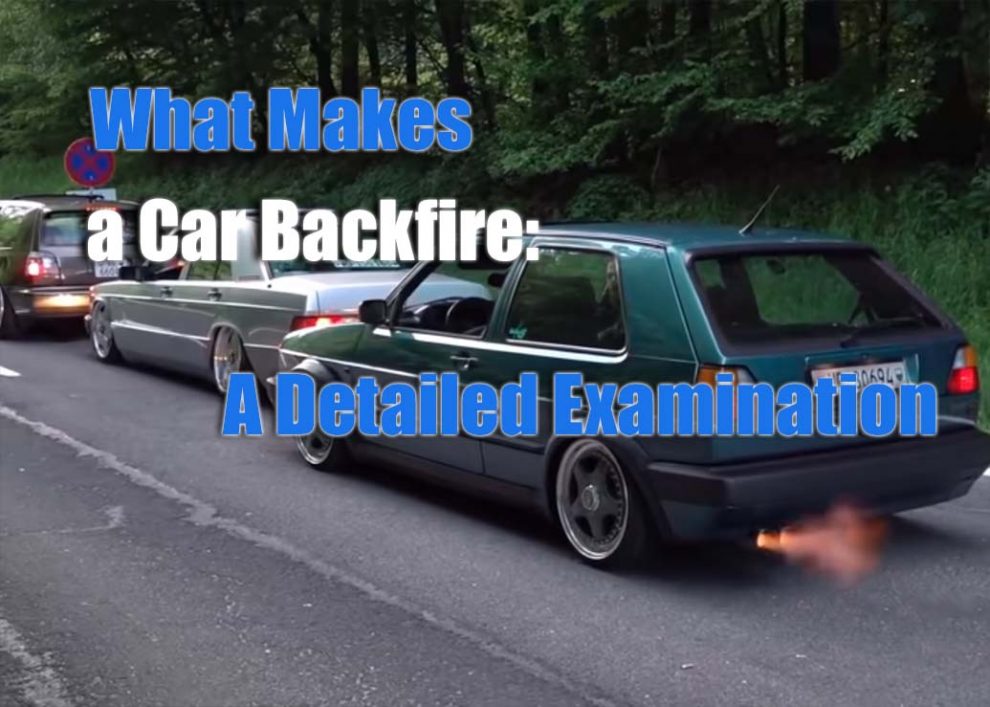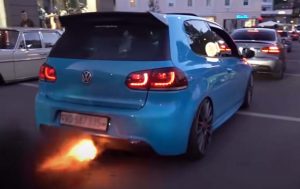A car backfire is a phenomenon that has left many a driver startled and concerned. Manifesting as a sudden loud noise reminiscent of a gunshot, it punctuates the otherwise expected hum and rhythm of a vehicle in motion. These unexpected sounds, often originating from the vehicle’s exhaust or intake, can be disconcerting and lead many to ponder about potential malfunctions or issues within their car. Beyond the immediate shock value, a backfire speaks volumes about the vehicle’s internal state, hinting at potential inefficiencies or mechanical hiccups that might need attention. Gaining clarity on what makes a car backfire not only provides peace of mind but also equips car owners with the knowledge to ensure their vehicles are running optimally. As we delve deeper into this topic, we’ll explore the intricate reasons behind backfires, their implications on vehicle performance, and preventive measures.
Primary Causes of Car Backfires
Several factors can lead to a car backfire, each stemming from different aspects of the vehicle’s mechanics. The main reasons include:
-
 Rich Air-Fuel Mixture: Excessive fuel remaining unburned in the combustion chamber can lead to backfires when this fuel is ignited in the exhaust system.
Rich Air-Fuel Mixture: Excessive fuel remaining unburned in the combustion chamber can lead to backfires when this fuel is ignited in the exhaust system. -
Timing Issues: The vehicle’s timing ensures fuel detonates at the right moment. If this is off, it can cause early or late detonations, leading to backfires.
-
Faulty Spark Plugs: These are responsible for igniting the fuel. Malfunctioning plugs can cause misfires, resulting in backfires.
-
Blocked Exhaust: Obstructions in the exhaust can lead to backfires due to sudden changes in pressure.
Effects on Vehicle Performance
Backfires should never be dismissed as mere inconveniences. They are clear indicators of underlying issues within the vehicle’s systems. Regular backfires can compromise fuel efficiency because of the associated unburned fuel. The disturbances in optimal combustion can hinder the engine’s power output. This can manifest as reduced responsiveness and slower acceleration. The explosive nature of backfires can also strain the exhaust system, potentially leading to damage or reduced component longevity. Over time, unchecked causes of backfires can result in broader engine issues.
Ways to Prevent Car Backfires
Prevention is often the best approach when dealing with automotive issues. To prevent backfires:
- Regularly check and replace aging spark plugs.
- Ensure a clean, obstruction-free exhaust system.
- Monitor and adjust the air-fuel mixture as necessary.
- Regularly inspect and calibrate the vehicle’s timing.
Conclusion and Enhancing Vehicle Performance
Backfires, while alarming, serve as important indicators of a vehicle’s internal health. By understanding what makes a car backfire, drivers can be better equipped to maintain their vehicles and prevent potential issues. For those keen on enhancing their vehicle’s performance, especially for Jeep Renegade owners, considering the Best Cold Air Intake for Jeep Renegade might be a beneficial upgrade. For a comprehensive review on this topic, refer to our dedicated article. Maintaining vehicle health and being informed about performance-enhancing upgrades can lead to a smoother, more efficient driving experience.


 Rich Air-Fuel Mixture: Excessive fuel remaining unburned in the combustion chamber can lead to backfires when this fuel is ignited in the exhaust system.
Rich Air-Fuel Mixture: Excessive fuel remaining unburned in the combustion chamber can lead to backfires when this fuel is ignited in the exhaust system.
Add Comment